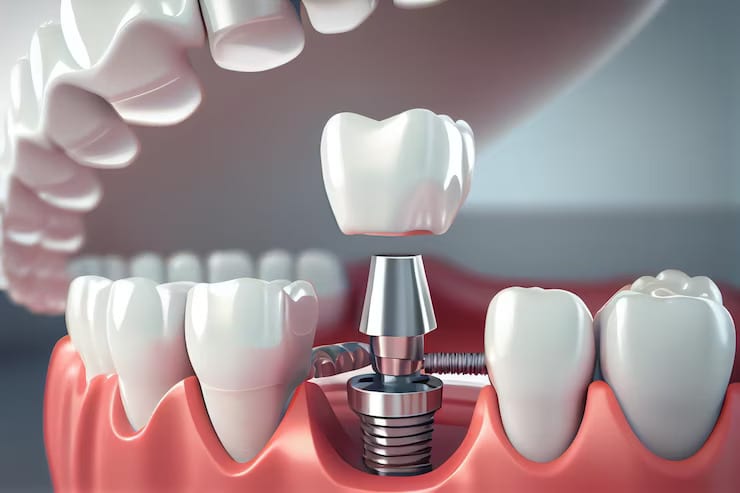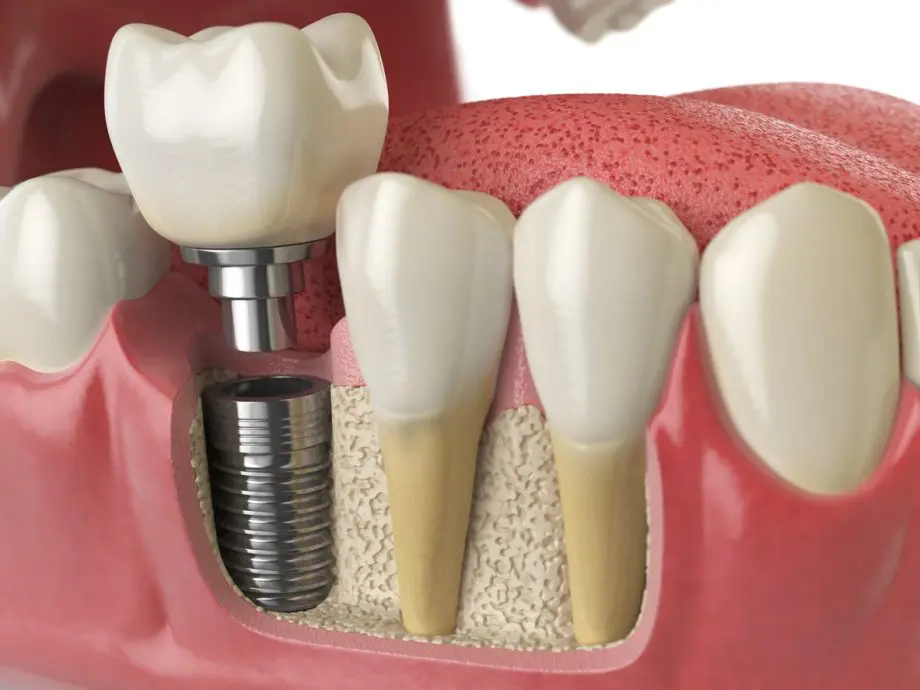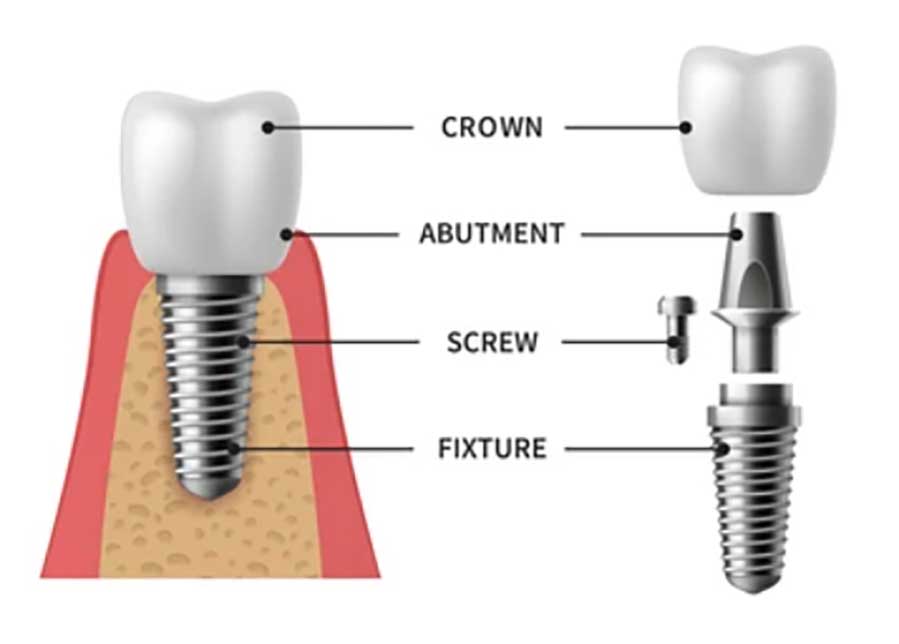Pediatric Dentist Johnstown OH Understanding Dental Implants: A Comprehensive Guide
Dental implants have emerged as a preferred selection for individuals in search of a long-term solution to tooth loss. One important side of understanding dental implants entails their impact on adjacent teeth. This is particularly necessary for making certain the health and longevity of the whole dental structure.
When a dental implant is positioned, it mimics the function of a natural tooth root. By doing so, it helps keep the integrity of the encompassing bone structure. Natural teeth rely on a balanced, interconnected system for support, and dental implants can contribute positively to that dynamic. The stability provided by the implant permits for better distribution of bite forces, which may prevent undue stress on adjacent teeth.
Johnstown Dental Columbus OH Understanding Dental Implants: A Comprehensive Guide
In circumstances where a tooth is missing, the neighboring teeth may shift into the vacant house. This shifting can lead to misalignment and varied different complications. By inserting a dental implant, the danger of this shifting is decreased, because the implant acts as a placeholder that preserves the natural alignment of surrounding teeth. This preventive effect is crucial for long-term oral health and function.
Another important consideration is bone loss. When a tooth is lost, the jawbone within the area can start to deteriorate as a end result of a lack of stimulation. Dental implants help prevent this bone loss by offering the required stimulation to the jawbone, much like a natural tooth root would. This preservation of bone not only supports the implant itself but additionally contributes to the soundness of adjacent teeth.
The type of fabric utilized in dental implants, usually titanium, has a unique property of osseointegration, meaning it fuses with the bone over time. This integration offers a sturdy foundation for the artificial tooth whereas ensuring that the implant doesn’t negatively affect surrounding structures. As the implant integrates, it creates an surroundings that contributes positively to the health of the adjacent teeth.

Regular dental check-ups play an important position in monitoring the impact of dental implants on adjacent teeth. Professional assessments might help identify any issues that may come up, making certain prompt remedy and sustaining the health of the entire dental arch. These evaluations may embody X-rays to verify for bone density and the general condition of the implant and surrounding teeth.
Johnstown Dental Galena OH Dental Implant Benefits
Oral hygiene practices are vital for people with dental implants. Proper brushing and flossing habits not solely contribute to the longevity of the implant but in addition be positive that adjacent teeth stay healthy. Food particles and plaque that accumulate across the implant can cause problems, together with peri-implantitis, an inflammatory condition that can affect surrounding teeth and tissues.
The positioning of dental implants can influence the health of adjacent teeth. If an implant is placed at an angle or not properly aligned, it might result in elevated strain on neighboring teeth. This misalignment might trigger wear and tear on adjacent enamel, probably resulting in cavities or different dental points. Therefore, the ability and experience of the dentist performing the implant procedure are paramount in attaining a successful end result.
In some cases, additional procedures may be needed to organize the surrounding space for an implant. Bone grafting or sinus lifts can help create a greater setting for the implant. While these procedures are aimed at enhancing the positioning for the implant, additionally they serve to guard the health of adjacent teeth by creating a more stable basis.
Pediatric Dentist Columbus OH What Are Dental Implants? Types, Benefits, and More

As dental know-how evolves, developments in implant methods result in higher outcomes. Improved imaging strategies and computer-aided design enable for extra exact placements that reduce risk to adjacent teeth. With these developments, the likelihood of issues that would arise from improperly placed implants diminishes considerably.
Post-operative care additionally performs a critical role in guaranteeing that adjacent teeth stay unaffected. Patients must adhere to the dentist's instructions regarding diet, oral hygiene, and follow-up visits. Neglecting these tips could lead to issues that influence not solely the implant but also the neighboring teeth.
Dental Implants Centerburg OH The Benefits of Dental Implants: Why Choose Them?
In conclusion, dental implants, when positioned correctly and cared for properly, have the potential to reinforce the health of adjacent teeth somewhat than detract from it. They keep alignment, stimulate bone progress, and provide a secure basis that supports the complete dental structure. Understanding how dental implants have an result on adjacent teeth emphasizes their significance as a long-term tooth replacement answer. With steady advancements in technology and methods, the combination of dental implants into restorative dentistry is turning into increasingly successful, making certain wholesome and useful smiles for years to return.

- Dental implants prevent adjacent teeth from shifting into the gap created by a missing tooth, serving to to keep up correct alignment within the mouth.
- The rebuilding of the jawbone via an implant can stimulate surrounding teeth and keep them healthy by offering necessary bone density that may in any other case diminish.
- Adjacent teeth benefit from the stabilization that dental implants present, decreasing the chance of wear and tear from misalignment throughout chewing.
- Implants can defend adjacent teeth by performing as a framework, which may distribute bite forces evenly throughout the dental arch instead of putting undue stress on neighboring teeth.
- When positioned accurately, dental implants decrease the danger of gum disease which can affect adjacent teeth by maintaining a clear and wholesome gum line.
- The presence of an implant can facilitate an improved oral hygiene routine, as it eliminates the need for bridgework that would entice meals particles around adjacent teeth.
- Regular dental check-ups can reveal how properly the implant integrates with surrounding buildings, making certain ongoing health for adjacent teeth.
- Implants can prevent the natural means of bone resorption that happens after tooth loss, positively impacting the steadiness and longevity of adjacent teeth.
- The use of dental implants may scale back the necessity for extra invasive procedures in the future, offering a long-term solution that maintains the structure of the whole dental arch.
- Successful integration of an implant into the dental arch enhances total oral perform, often resulting in improved confidence and oral health for adjacent teeth.undefinedHow do dental implants affect adjacent teeth?
What influence do dental implants have on the alignment of adjacent teeth?
Dental implants generally prevent the shifting of adjacent teeth, serving to to maintain correct alignment. This stability can cut back the risk of creating chew points over time.
Can dental implants cause injury to close by teeth?
When placed correctly by a certified skilled, dental implants mustn't injury adjacent teeth - Dental Care Sunbury OH. However, improper placement or inadequate planning may result in complications
Mono Dental Implants Hartford OH Dental Implant Surgery
Do dental implants click to investigate require any particular care concerning adjacent teeth?
Maintaining good oral hygiene is crucial. Surrounding teeth ought to be brushed and flossed often, and routine dental check-ups will assist be sure that each the implants and adjacent teeth stay wholesome.

Will dental implants impression the health of site my surrounding teeth?
Dental implants can improve the health of surrounding teeth by distributing chew forces evenly, lowering put on and tear. Additionally, they will prevent bone loss within the jaw, which might affect adjacent teeth.
Dental Center Granville OH Dental Implant Types: Choosing the Right Solution
Are there any long-term results of dental implants on close by teeth?
Long-term, dental implants can help protect the health of adjacent teeth by preventing shifting and potential gum points, ultimately contributing to raised oral health total. - Dentists Hartford OH
Can gum problems arise round adjacent teeth after getting implants?
If correct dental care is neglected, gum points may develop round each the implants and adjacent teeth. Following post-operative care directions is important to attenuate these risks.
Mono Implants Hartford OH The Benefits of Dental Implants: Why Choose Them?
How do dental implants compare to bridges when it comes to adjacent More about the author teeth?
Dental implants are typically beneficial as they don’t require alteration of adjacent teeth, not like bridges, which necessitate reshaping of close by teeth for help. (Dental Implants Hartford OH)
Can I nonetheless get cavities in adjacent teeth if I actually have dental implants?
Yes, adjacent teeth can still develop cavities if not properly cared for. Dental implants themselves cannot get cavities, but they require vigilant hygiene practices to protect surrounding natural teeth.
What is the success rate of dental implants in relation to surrounding teeth?
The success rate of dental implants is high, but it largely is determined by the standard of the procedure and ongoing care. Well-maintained implants often result in higher outcomes for adjacent teeth as properly.